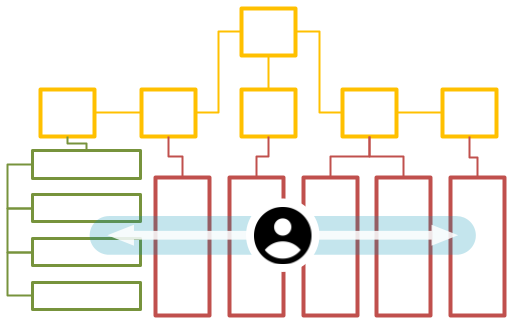Failed Approaches in Response to Complexity
In response to the challenges of today’s commercial environment, some organisations do nothing:
- Either resigned to the situation: it’s just how it is, relationships are hard, and organisations have to soldier-on as best they can.
- Or in denial, assuming that current challenges (Ukraine and inflation, etc, and Covid before that) are exceptional circumstances, and that things will return to normal soon.
Most organisations know that even “normal” is increasingly challenging and do recognise that something needs to be done, but they default to conventional approaches that have demonstrably failed:
- Doubling-down on what they’ve always done – enforcing contracts, implementing standards, delivering training, gathering more data, restructuring roles and responsibilities, etc – but doing more of it, and doing it more emphatically… often in an attempt to “get back to basics”.
- Pursuing quick fixes: typically new technology – AI, Big Data, the Internet of Things, etc – but also appointing a new CEO, getting in external consultancy, etc… the common thread being to look for something that will “change the rules”.
Such approaches fail in two fatal ways:
- They fail to recognise and respond appropriately to complexity, trying to control or sidestep its challenges.
- They don’t identify, pursue and effectively measure the true value in strategic relationships.
The problem isn’t just that this is sub-optimal; it actively makes things worse.
Conventional Approaches Don’t Take Complexity Into Account
Conventional approaches have their place: nobody is suggesting that contracts should go in the bin, that standards have nothing useful to say, and so on.
However, the way they are currently being used fails to recognise the reality of complexity and attempts (but fails) to work against it – instead treating reality as “complicated”:

This involves a set of fatal (albeit usually subconscious) misassumptions about the challenges faced:
- That they are knowable, and can be anticipated, mitigated against and “solved”.
- They can be clearly defined, are mostly tangible and remain static.
- They are the sum of their parts.
- That effectiveness in response requires prioritising efficiency and optimisation.
Some limited circumstances remain where “command and control” approaches are appropriate.
However, today’s environment and strategic relationships are dominated by the fuzzy and subjective, the unknown and the unpredictable, and by constant and rapid change.
Conventional Approaches Make Things Worse
Conventional approaches, as they are typically used, therefore create huge inefficiencies and waste:
- Ever more detailed standards and best practice guides are to be implemented in full, by everyone – the assumption being that “a rising tide will float all boats” – but usually with little nuance for specific circumstances, such that resources are squandered.
- Fixed hierarchical structures create bottlenecks at the “top” through which everything must flow “down”, delaying and distorting flows back “up” from the ground.
- Agility requires change, which requires innovation, which depends on dynamic networking and rapid information-exchange; formal processes and structures artificially constrain all this.
- Behavioural training often has the implicit assumption that it is the people that are at fault – not the approaches and tools in use – which not only often misses the point, but actively demoralises those people.
Even the pursuit of technology usually involves a sense that all situations are ultimately reducible to a challenge of analysis and processing, with responsibility significantly “abdicated” to a “system” – both again missing the point and squandering the human intelligence available.
As a variant of the quote often attributed to Einstein puts it, “We cannot solve our problems with the same thinking we used when we created them”, and a new approach is needed to respond appropriately to complexity – one rooted in complexity itself by being led by value.
Articles related to Failed Approaches:
Agile Truths and Fallacies
“Becoming agile is essential” Presented as critical in responding to the challenges of today’s complex environment – sometimes even as the answer – something along this lines is an increasingly familiar refrain and rallying cry. Whether it’s from consultants like PwC, Deloitte, McKinsey or as seen in…
The Untapped Powerhouse CEOs Are Ignoring: Cross-Functional Internal Consultants as the Ultimate Change Agents
In a world where businesses face constant disruption and relentless competition, CEOs are under enormous pressure to implement change and stay ahead of the curve. While many organizations invest heavily in external consultants, there is an untapped powerhouse within their own walls that is often…


